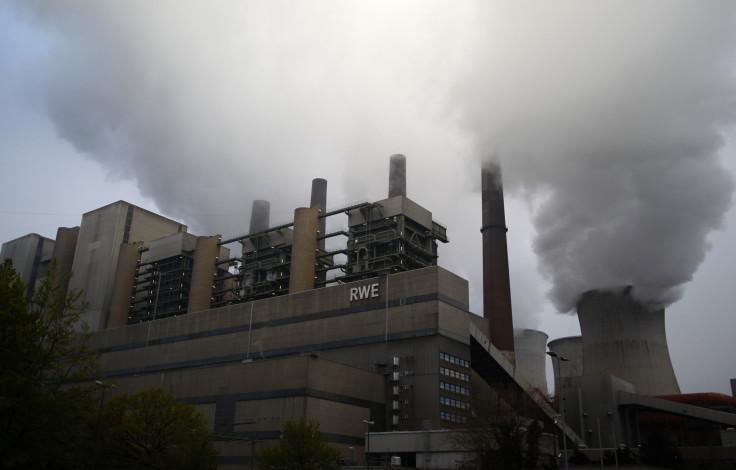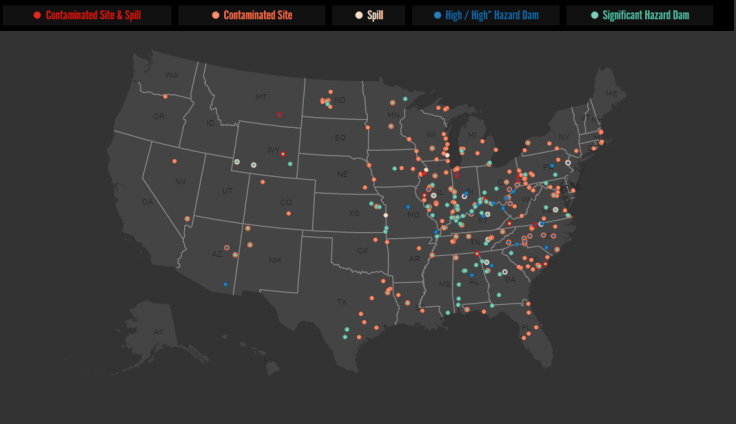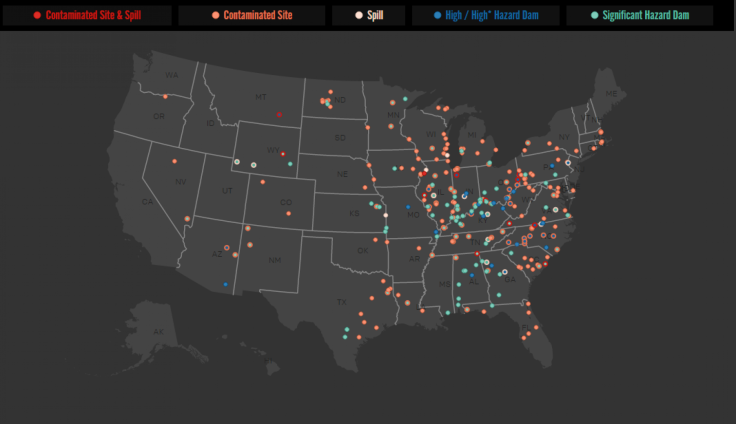White House Issues Veto Threat For House Coal Ash Bill

The Obama administration is threatening to veto a House bill that would weaken new federal limits on coal ash, the toxic byproduct of coal-fired power plants. Legislators are set to vote Wednesday on the measure, which senior White House advisers say will “undermine the protection of public health” if passed.
H.R. 1734 targets a suite of coal-ash regulations adopted by the U.S. Environmental Protection Agency in December. The rules aim to prevent massive spills and protect drinking water by forcing faulty dumps to close and keeping new facilities out of wetlands and other environmentally sensitive areas.
The protections were prompted by a December 2008 accident at an eastern Tennessee coal plant, which dumped 5.4 million cubic yards of ash into nearby rivers -- an amount greater than all the crude oil that spilled in the 2010 BP disaster in the Gulf of Mexico. Since then, the EPA has found hundreds of cases of coal ash tainting lakes, rivers and streams, including a major 2014 spill at a Duke Energy coal plant in Eden, North Carolina.

The House bill, brought by Rep. David McKinley, R-West Virginia, would delay or eliminate some of the EPA standards. It would also take the unprecedented step of removing the EPA’s authority to regulate coal ash -- the nation’s second-largest industrial waste stream -- and instead give sole regulatory authority to the states, with only minimal oversight from the federal agency.
Coal ash is created by burning coal for electricity and contains toxic heavy metals such as arsenic, mercury and lead. The nation’s power plants produce about 140 million tons of the product each year, which gets dumped in around 1,400 lined and unlined ponds and landfills near the facilities. About 40 percent of coal ash is recycled into building materials, including concrete and wallboard, and used to strengthen metal alloys and plastics.
McKinley has said the EPA rules are “vague and harmful” and would jeopardize hundreds of thousands of jobs in the coal ash recycling industry.
“We need this common-sense reform to ensure coal ash programs meet standards to protect the environment while providing flexibility to the states on implementation,” he said in a previous statement.
The bill is McKinley’s sixth attempt to weaken federal oversight of the coal ash industry. The White House also opposed those measures, but H.R. 1734 is the first to draw a veto threat. In a Tuesday memo, senior advisers said they would recommend that President Barack Obama veto the House bill if it lands on his desk as drafted.
“Because it would undercut important national protections provided by EPA’s [rule], the administration strongly opposes H.R. 1734,” the Office of Management and Budget said.

Environmental groups initially criticized the EPA rules in December, saying the measures don’t do enough to protect communities living near coal ash dumps. The rules place coal ash in the same category as household garbage, instead of deeming the sludgy substance a “hazardous material” -- a designation that could’ve required costly upgrades at power plants and ash ponds and landfills.
“The rule itself could’ve been so much better,” said Lisa Evans, a senior administrative counsel with Earthjustice in Boston who has worked on coal ash issues for 15 years. “The health protections we were left with in the rule are absolutely the baseline essential protections.”
Still, Evans said the first-ever federal coal ash rules are an important step in improving the way U.S. power companies handle and dispose of the toxic byproduct.
“Even though the EPA rule was weak, the legislation is so much worse,” she says. “The broadness of this legislation and its permanence is what will really hurt the communities living near coal ash dumps.”
© Copyright IBTimes 2025. All rights reserved.





















